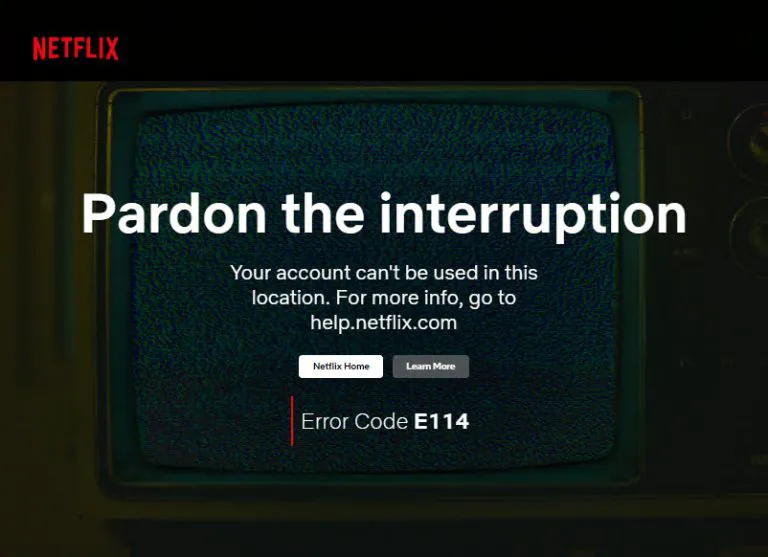How to Find Someone’s Address by Name | 2025 Guide
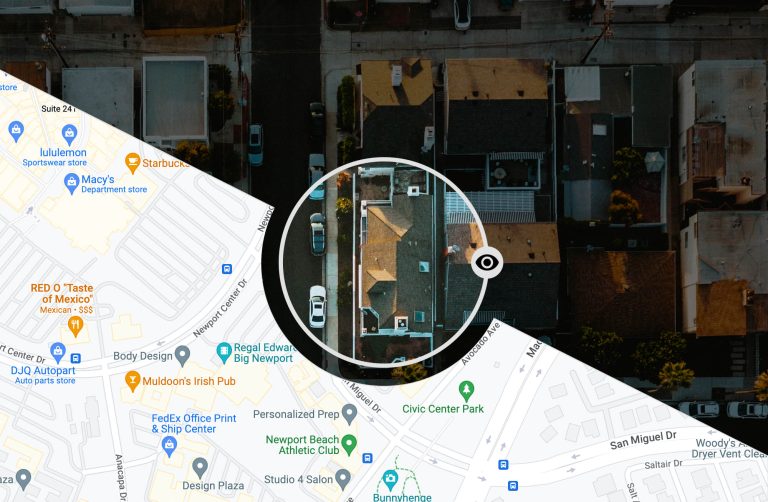
You might need to find someone’s address for heartfelt reasons, like reconnecting or sending holiday cards. Or perhaps it’s for more serious matters, such as delivering a demand letter or serving legal documents. Whatever the reason, finding someone’s address can sometimes feel tricky, especially if they’ve moved around frequently[1].
But don’t worry! This guide will walk you through a variety of methods, from straightforward ones to advanced strategies that require specialized tools or a bit more effort. Even if all you have is a name, there are still ways to find what you’re looking for. Read on!
Table of contents
💡 Open your mind:
- For legal matters, process service isn’t limited to residential addresses. You can serve documents at places the person frequents, such as their workplace, gym, or favorite restaurant, as long as you can find them in person.
- For personal reunions, don’t limit your search to just addresses. Phone numbers, social media profiles, and email addresses can also help re-establish connections.
If you have any questions or suggestions, feel free to share them in the comment section — we’d love to hear from you!
Method 1. People search engines
What you need: Either name, phone number, email address, or license plate number
People search websites function similarly to standard search engines, but they specialize in finding information about people. These sites gather vast amounts of data from a variety of sources. They then compile all this information into a single, easy-to-understand report that includes contact details of the person, like past and present addresses, saving you both time and effort.
There are plenty of people search sites out there, and not all of them are reliable or of high quality. That’s why we personally tested many of them, especially those popular and top-rated options. And TruthFinder stands out among similar services when it comes to finding someone’s address.
TruthFinder has access to quite extensive sources, including government databases, social media, and some exclusive channels, and use advanced matching mechanisms to sort out the data. One Trustpilot review even noted that it was the only service that successfully located their updated address.
One feature I found particularly helpful in TruthFinder for finding addresses is its inclusion of voter registration history and asset data (when available). These details can be key in identifying someone’s current residential address. The report also provides a Criminal and Traffic section, which can be another valuable clues. You can take this information further by searching specific county court records, which often contain addresses and are publicly accessible to U.S. citizens.
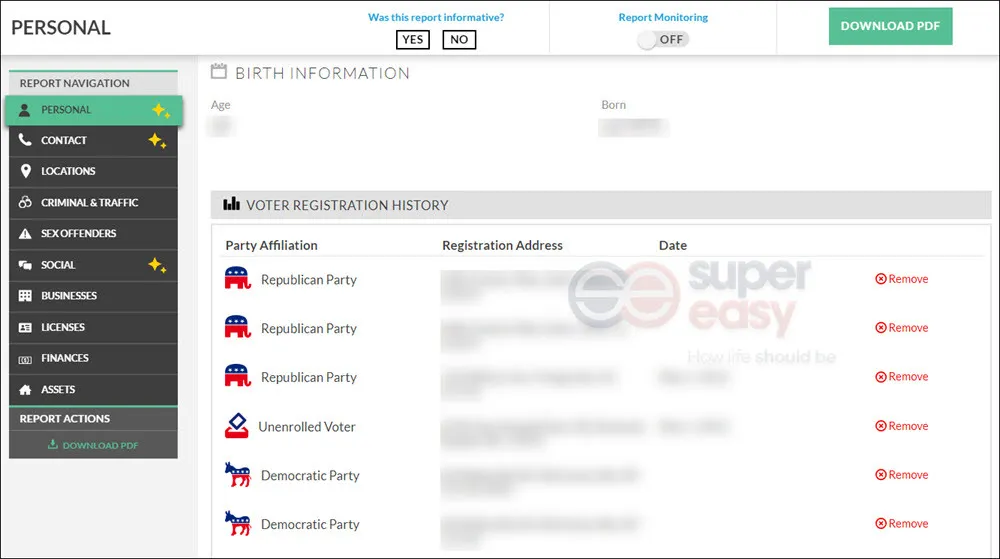
TruthFinder reports also provide details on possible relatives, social media profiles, education, and jobs, helping you trace the person’s digital footprint and possibly leading to their current address.
How to use TruthFinder to find someone’s address
- Go to TruthFinder. It supports name search, phone number search, email search.
Note: If you have vehicle information, such as a VIN or license plate number, BeenVerified is another strong option. - Enter the information you have and search.
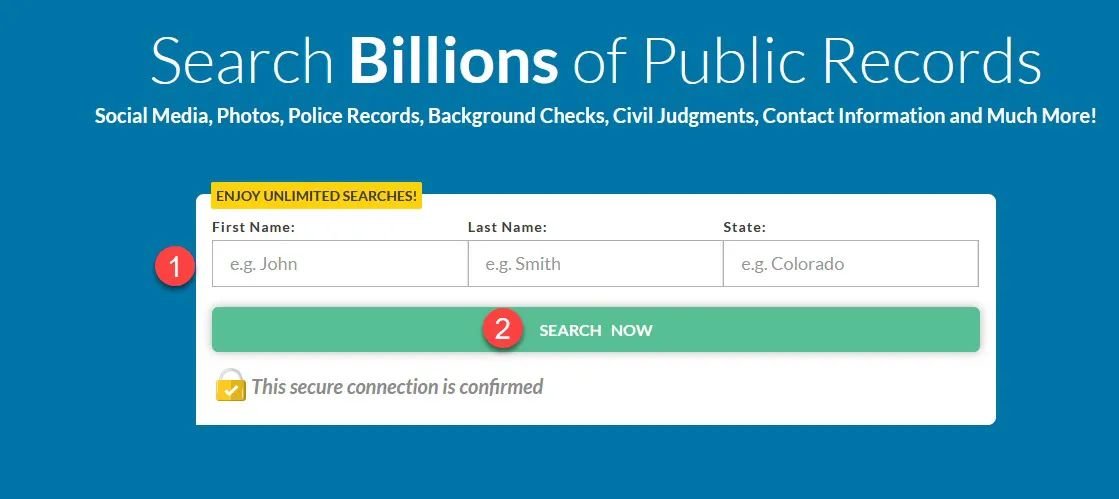
- TruthFinder would find possible matches and you can click to view the detailed report. (TruthFinder is a pais service. You’ll need to sign up and purchase a membership before you can access the full report.)
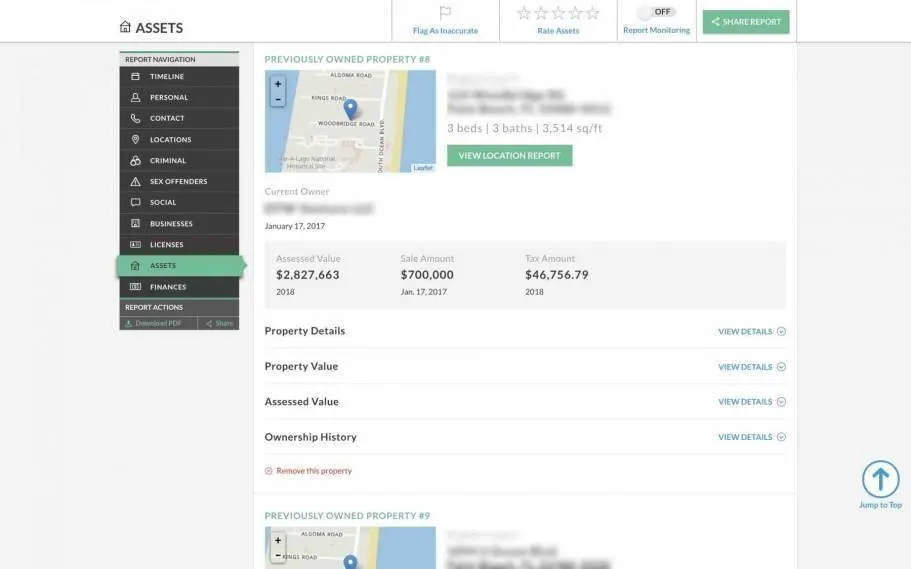
The above image is from a sample TruthFinder report. Actual TruthFinder reports may contain more or less information.
Tip: People search engines are excellent for collecting a variety of information, but their results aren’t always 100% accurate. They’re not perfect; handling large datasets means efficiency and accuracy may sometimes conflict, and their data might not reflect recent updates. That’s why it’s important not to rely on them entirely—always verify and cross-check the information you find.
Once you have a potential address, you can verify it through postal services or move to Method 4: Search public records to check it through official government portals. If you prefer to conduct the search yourself, continue reading for more tips on the following methods.
Free vs. paid
Many of you might be wondering: are there any free tools that can help?
It’s certainly possible to search for someone’s address online by entering their name into free people search engines. However, the results may be outdated or incomplete. While no tool can guarantee 100% accuracy, paid services often have access to broader data sources and use more advanced matching techniques to deliver better results.
From our experience, free tools like Whitepages and AnyWho typically show only one possible address and phone number. On the other hand, paid services provide much more detailed information, including current and previous addresses, contact details, social media profiles, and public records such as criminal or traffic reports.

Method 2. Google name search
What you need: The person’s name
Google is the simplest way to start your search, but it’s not a direct method to find someone’s address. The goal is to gather as much information as possible about the person you’re looking for. By simply Googling the person’s name, you might find their social media profiles, LinkedIn profiles, workplace, or even public records that might eventually lead to locating their address.
To make your search more effective, here are some Google search tips:
- Use quotation marks: Put quotes around the person’s name to search for the exact phrase. E.g. Search for “John Doe” instead of John Doe.
- Search for other names: If you know the person’s nickname, previous name, or business name, try searching with these for more information. You can also remove the middle name to broaden your search if you receive little results. E.g. search for “John Doe” rather than “John Middle Doe”.
- Add location: Add the city, county, or state where the person lives to narrow down your results. E.g. “John Doe” California;
- Include job title: Add the person’s job title to narrow down your results. You may find their LinkedIn profile or workplace. E.g. John Doe engineer.
Note: If you view the person’s LinkedIn profile while logged in, they will be notified that you viewed their profile. You can prevent it by browsing in private mode. - Utilize Google filers: Use filers to refine your results based on specific types of content.

Once you’ve found some information, you can conduct a further search. For example, view their social media accounts for the latest updates, which may reveal where they are, or search public records if available.
Method 3. Social media search
What you need: The person’s name and your social media accounts
Checking a person’s social media accounts is a great way to get detailed and up-to-date information about someone, especially if you find the account where they frequently share their lives. Their posts may reveal clues about recent moves or location changes.
Comment
by from discussion
inlegal
To achieve your goal, you’ll need the person’s social media accounts. If you already know their social media accounts, that’s great. But if not, you can use a people search engine or perform a manual search.
In addition to Google, search directly on major social media platforms using their built-in search features. These platforms’ search bars often yield more accurate and extensive results.
If you know very little about the person, Facebook and LinkedIn are a good start. They are the best platforms for real name searches. On Facebook, you can explore the person’s social network, including their family, friends, and classmates. If you find someone who knows the person, you could ask them to help reconnect or even obtain the person’s current address. If you share an experience with the person, such as being former schoolmates, try joining your school’s Facebook group or alumni page to request information. Some alumni groups provide directories specifically designed to help old friends reconnect.
A social media search may provide clues, but it could also lead to nothing. If it doesn’t work, try searching public records, which may help you find their address.
Method 4. Public records lookup
What you need: The person’s name and certain information
If previous methods haven’t worked, you can try searching public records. Many government records are public and can be searched online, but access depends on state laws. Here are six types of public records that may contain address information:
- Voter information
- Asset records
- Court records
- Professional licenses
- Marriage records
- Local libraries and archives
Each type of record is searchable through different portals, but the access or searching requirements may vary by state and county. However, a common point of these records is that you should know the specific county, or at least the state where the person might be registered.
Voter information
What you need: The person’s name and date of birth, registered state
Voter registration data is available for U.S. citizens aged 18 and older, and voter rolls collect residential addresses. Even if the person lacks other public records, their voting registration might be available.
To begin, you need to know the state where they registered. Then, search for voter information by typing: “voter registration + state” to locate the correct portal.
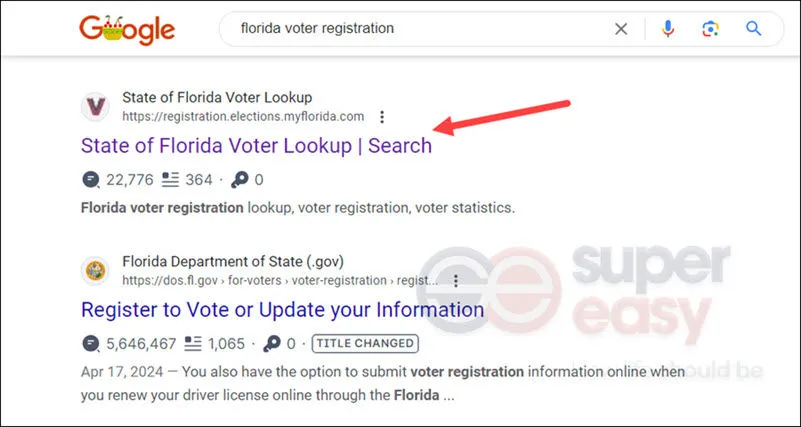
You may need the person’s name and date of birth to access these records.
Note: In some states, voter information is confidential. The process and cost of accessing this data can vary from state to state.
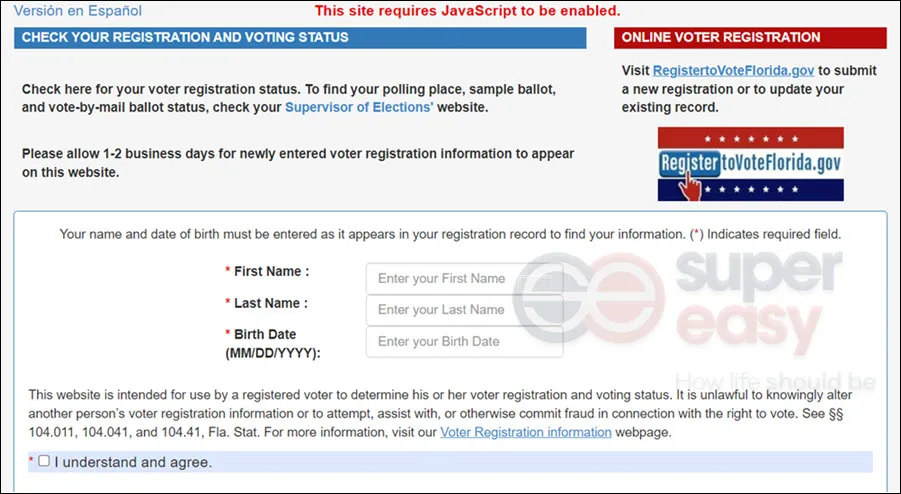
Property search
What you need: The person’s name and the county where the property is located
For property searches, you’ll need to know the county where the property is located, as there’s no centralized property database. This is where people search engines can be helpful—they may uncover clues that direct you to the correct county or state.
Once you have this information, visit the county assessor’s office to request property ownership details. Some counties require in-person visits to the public records office, while others may offer online access through their property record databases.
Here’s a guide for online searches:
- Google the county’s property record database.
- Search the database with the person’s full name.
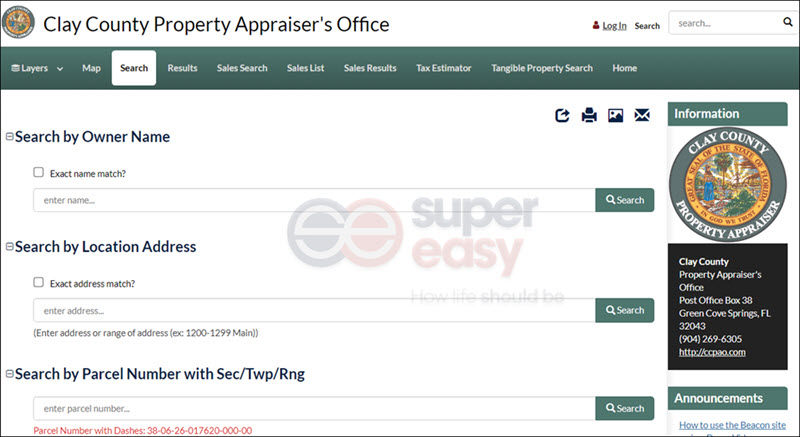
- Review the records to find the property address and additional information.
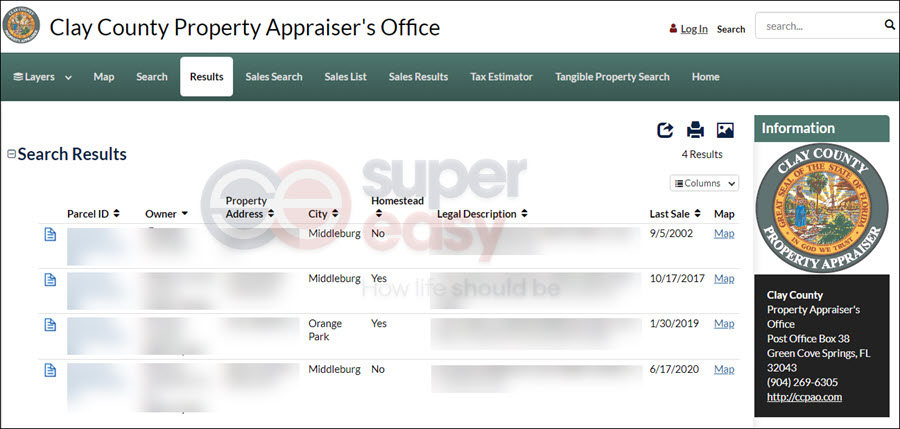
Court record search
What you need: The person’s name, and the possible county or state
If you believe the person has a court record, search the county court records database. Once you find the portal, search using the person’s name to locate court records.
Let’s take Clay County as an example to see how court records can be used to find information.
- Google “Clay County court records” and navigate to the official Clay County Clerk of Court page.
- Click Court Records.
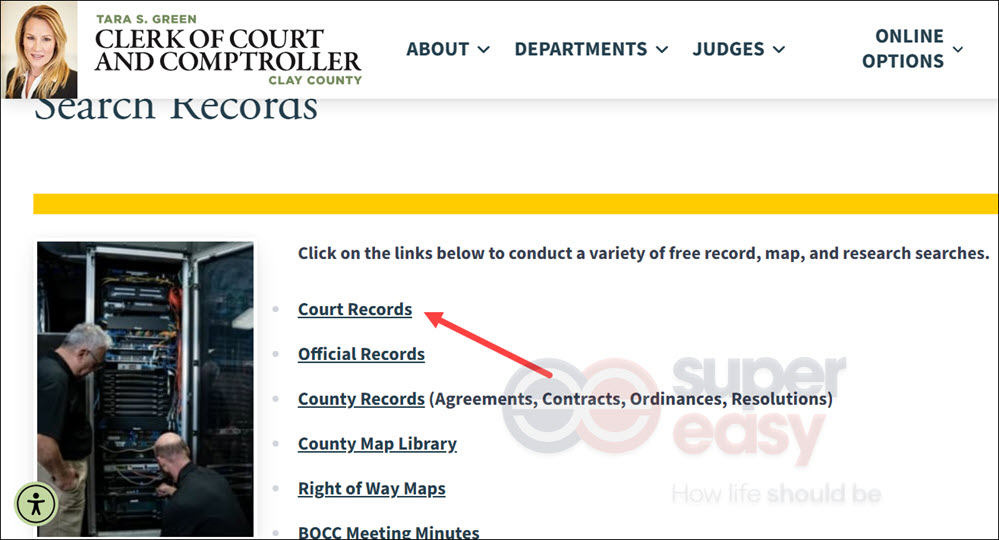
- Enter the required information: Last name (Doe), First name (John). Be sure to follow the input format carefully to avoid incorrect results.
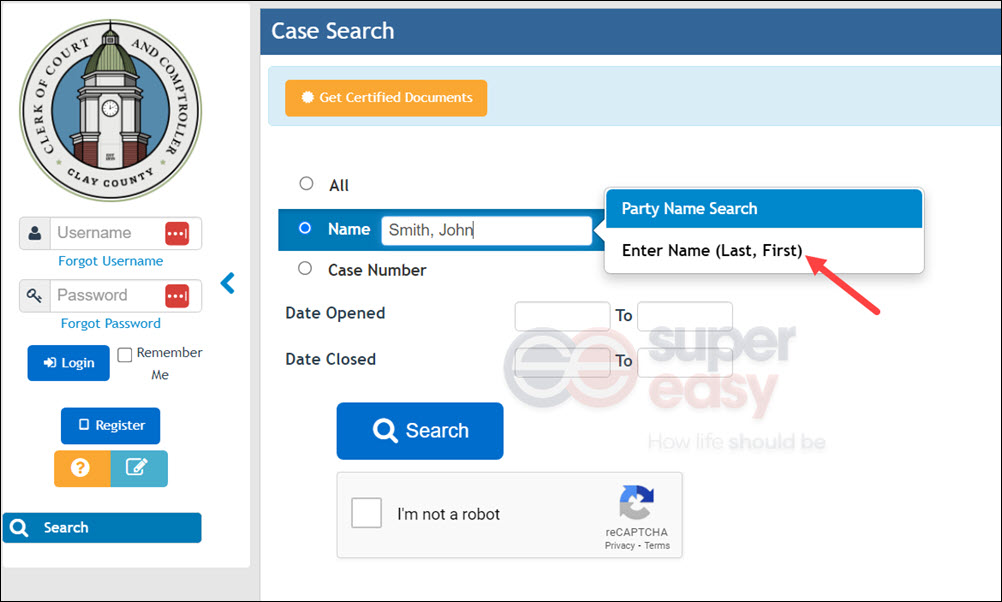
- View results to find address.

In different states, accessing public records may require payment or proof of identity, with policies varying by region.
If you think the person may be in prison or jail, you can search for the possible county inmate search. If you don’t know where the person is in, search for the counties, state, and federal where you think the person might be incarcerated.
Also, don’t forget to search the National Sex Offender Public website, which contains sex offender registries for all 50 states, the District of Columbia, U.S. Territories, and Indian Country.
Professional licenses search
What you need: The person’s name and registered state
Professional licenses, such as those for lawyers, doctors, and physical therapists, are public records maintained by government agencies. These records are usually accessible to the public and allow individuals to verify professional credentials.
For example, lawyers are licensed by state agencies, and you can check whether a person has a law license by visiting the relevant state agency’s portal. Here’s the portal for all states.
Marriage records
What you need: The person’s name and registered state
Marriage records belong to vital records which are not as freely accessible as other types of public records due to privacy concerns, and their availability varies by state. Some states and counties allow public search of marriage records, some are not.
We found a marriage license through an online county database, but since processes differ across counties and states, you may need to search extensively and could still find nothing. We suggest contacting the county clerk’s office for more information if you know which county the person lives in.
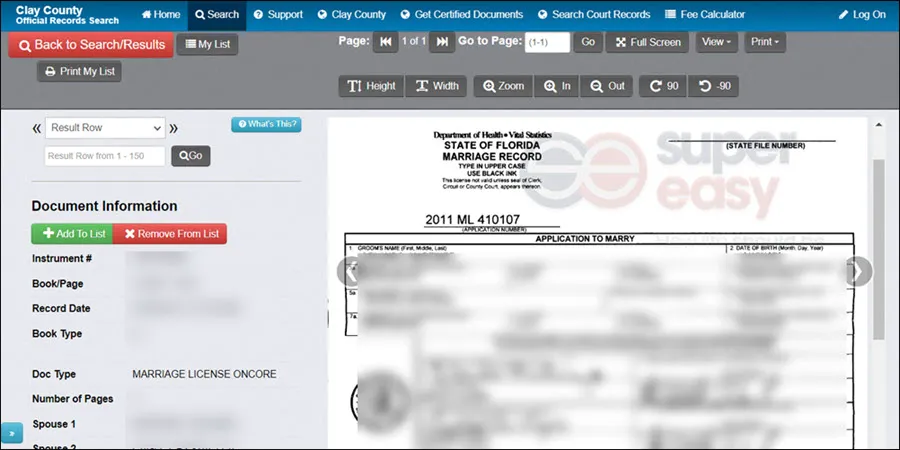
Local libraries and archives
What you need: The person’s name
For historical searches, websites like ancestry.com and family tree directories can help. After identifying the county where the person lived, you can visit local libraries and archives to confirm their address. Local libraries and archives can be valuable. In the past, city directories served as primary records of where people lived, providing insights into their daily lives. But we don’t recommend looking for county libraries’s online portals, because the electronic level of each county varies, and some of them are neglected maintenance, For example, SanDiego digital archives are only updated to 1960. It’s better to go to the libraries to read the old records.
Once you have found the address, you can move to the next method to verify whether it’s a current address.
Method 5. Postal service
What you need: The person’s name and last known address
Postal service is a way to verify or find someone’s current address if the person has filed a change of address.
To use the service, you’ll need the person’s name and their last known address.
- Go to post office to send a letter (such as a demand letter) to the person’s last known address.
- Write “Return Service Requested” or “Address Correction Requested” under your return address (the phrase may vary; ask your local post office).
- If the person has updated their address with the post office, you’ll receive the letter back with the new address.
This method can take several days to weeks and may incur costs. There’s also a risk that the postal service could lose your letter.
Or you can visit the local post office of the person’s last known address and ask if they left a forwarding address. You may need to fill out a form for this inquiry.
Method 6. Community and neighborhood resources
If you know the general area where someone lives, such as the county and street where they used to live, this can be a good starting point. Try visiting the neighborhood and speaking with locals. Asking neighbors or community members for information can be hit or miss—some may offer valuable insights, while others might not know much. However, if they do offer information, it’s likely to be current and firsthand, giving you a higher chance of finding the person’s address or frequent showing-up locations.
Moreover, you can take a look at community directories, bulletin boards, or newsletters where residents might post announcements or contact information. Such resources can sometimes contain information about the person you’re looking, and may include address details.
What to do when I fail to find someone’s current address
If all your efforts fail and you still can’t find the person’s address, there are a few other options you can consider:
- Hire a process server: If you need the address for legal reasons, consider hiring a process server. They specialize in delivering legal documents and may also work as private investigators.
Note: You may ask court’s permission for “Service by publication” which is usually used when you don’t know how to find the other side and do not have an address or workplace for the person. But you have to prove to the court that you’ve tried every method to find the other side. You can ask your court clerk for more information. - Hire a private investigator or skip tracer: While this can be costly, these professionals are skilled at locating people. All the information you’ve gathered so far will help them track down the person.
In conclusion, we suggest you put hire professionals as the final solution due to its high costs.
Conclusion
Finding someone’s current address can feel overwhelming, but using a combination of strategies increases your chances of success. From Google searches and social media to specialized people search engines and public records, each method brings its own advantages. Free tools are a good starting point, but when those fall short, paid services can provide more detailed and reliable information.
Remember, persistence is key. If one method doesn’t yield the results you’re hoping for, try another, or combine multiple strategies for a more comprehensive search. And don’t forget to verify the information you gather to ensure it’s up-to-date and accurate.
In the end, finding the right approach depends on your needs and the amount of effort you’re willing to invest. With patience and the right tools, you’re well-equipped to locate the information you need.
All product names, logos, brands, trademarks and registered trademarks are property of their respective owners.
- Americans, on average, move 11.7 times in their lifetime, according to Steinway Moving and Storage.↩

 View all of Iris Zheng's posts.
View all of Iris Zheng's posts.


